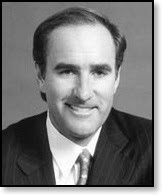When a new CEO comes into a company, the rest of the company can certainly anticipate that there will be many changes. The question, however, is how quickly those changes will occur. According to executive recruiter Dennis Carey, the depth and speed of those changes usually has a lot to do with the hiring circumstance of the CEO. If someone has been promoted from within, and they are working with a well-run company, they may greatly limit the turnover rate. If, however, a CEO has been brought in from elsewhere, and the company is failing, the executive changes will be quite fast and sweeping.
Dennis Carey continued to explain that under these later situations, the first jobs to turnover are usually the CFO, the general counsel, and the head of human resources.
Kevin Coyne, a management consultant and a professor at Emory University’s business school, said that CEOs typically decide on their strategy within the first 60 days. They will group the workers into four categories: those who will be invaluable; those they are keeping, but who aren’t exceptional; those they are keeping for now but will eventually fire; and those they are firing right now.
